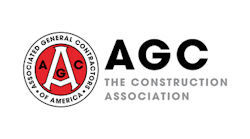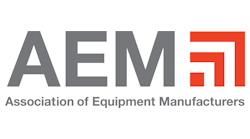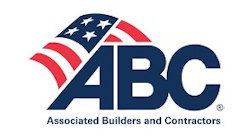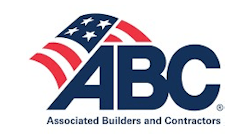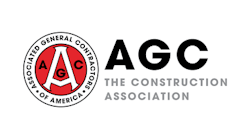When Monroe Bartels started MBI Construction Inc. nearly 35 years ago in Effingham, IL, he could not have imagined how a unique concrete job would transform the business. Since the beginning, MBI’s core business was in the residential market with basement work. MBI remained true to this core for more than 30 years, even through a leadership change to Monroe’s son, Gary.
Applications didn’t change much until a few years ago, when a friend approached Gary with a unique opportunity. “I’m a helicopter pilot, and so is this friend who approached me about pouring the floor for his warehouse,” Gary Bartels, president of MBI, explains. It wasn’t just another run-of-the-mill pour. The warehouse was located deep inside the caverns of an old aggregate quarry.
Although declining his friend’s initial request to pour the floor a couple of years earlier, Gary decided to accept the challenge that no other contractor would touch. “MBI takes pride in getting a project done where others cannot,” he says. This decision turned out to be a pivotal point in MBI’s history, one that has resulted in a 40% growth in sales over a three-year period.
Underground Warehouse
Incredibly, it wasn’t the conditions inside the “cave” warehouse that caused the problems for the 1,000,000-square-foot concrete pour. As Bartels explains, the cave project had nearly ideal conditions. “The temperature and humidity changes were negligible. It was nearly lab conditions and this meant no cracking,” he says.
There were only a couple of challenges with this application: straying off path and getting lost in the absolute darkness was one, and getting concrete to the site was another. The nearest plant was more than 20 miles away, and it didn’t have the additional capacity to supply material fast enough for the project.
After purchasing a portable plant, MBI’s sales increased by 40% over a three-year period.
MBI decided to expand into an area where it had little firsthand experience: concrete production. The company needed a plant in order to quickly and economically get the job done. With the majority of its work coming from rural Illinois, within 100 miles of MBI’s Effingham location, MBI also wanted a portable plant that could be mobilized to remote locations.
The Right Plant
MBI searched the various concrete plant manufacturers for an extremely portable plant. The search ended in Oklahoma City with Terex Roadbuilding. “We looked at all the other concrete plants, and only the Rustler R3 has a truly portable design,” Bartels says.
Moving the R3 throughout Illinois requires only a wide-load permit for MBI. The other plants are over height as well as over width, so MBI would have incurred additional expense for escorts.
With compact travel dimensions and a weight of 53,600 pounds, the Terex Rustler R3 plant can be quickly moved from site to site. A “no crane” setup design and optional steel pads that eliminate the need for concrete foundations allow the plant to be erected into operating position within an hour.
“We can have our whole plant operation ready to go in about two to three hours,” Bartels says. Depending on the application, MBI adds fly ash silos and bins with two or three conveyors to the layout.
Quick and efficient with low mobilization costs, the R3 gives MBI the flexibility to move the plant for very low tonnage applications. The company typically moves the plant for jobs in the 5,000-cubic-yard and higher range, but it has transported the plant for jobs as small as 2,000 cubic yards.
Once onsite, the reliable R3 efficiently produces a quality mix. “It’s a slick portable plant that is simple to run,” says Matt Bartels, plant operator for MBI. “It has fewer moving parts, which reduces the chances for problems.”
MBI’s Rustler R3 plant can produce up to 160 cubic yards of concrete per hour right onsite, helping to lower costs and improve efficiencies.
Since MBI locates the plant onsite, the company’s ready-mix trucks do not require licenses or over-the-road insurance, saving the company money annually.
The Transformation
While MBI continues to pour more than 100 basements a year, Gary Bartels now looks for jobs that require a plant to make the mix. The majority of this work is commercial: department stores, large grain silo pads, and warehouses. And the company is becoming quite efficient and cost-effective with the plant.
The Rustler R3 is capable of producing up to 160 cubic yards of concrete per hour. The key to successfully completing commercial work is having the clean-running R3 plant placed right on the job site. This gives MBI the flexibility to use ready mix trucks that do not require license or over-the-road insurance, which annually saves the company about $4,000 per truck.
This allows MBI to use fewer trucks to transport more material in a shorter amount of time. “We once poured 2,000 cubic yards of concrete in one day, pulling material from both our onsite plant and a plant 20 miles away,” Gary Bartels recalls. “It took 13 trucks to pour 700 cubic yards from the offsite plant, but we were able to deliver 1,300 cubic yards from our onsite plant using only six trucks.”
The R3 plant enables MBI to keep its costs down and remain competitive. “Depending on the location, we typically can be cost-competitive with an asphalt producer for supplying material to pave department store parking lots,” he continues.
Improving efficiency with the concrete plant has helped MBI’s project load to grow. The company is so busy that it has purchased two additional Rustler R3 plants over a two-year period. MBI keeps the plants busy throughout much of the year, including the cold winter months.
Gary Bartels remains aware that it is the hard work of his dedicated crews that have helped to elevate MBI to where it is today. As a constant reminder of its roots, MBI has a wall-sized mural of important points throughout the company’s history. At the center of this mural is the underground warehouse and R3 plant, which have helped to transform the company.
